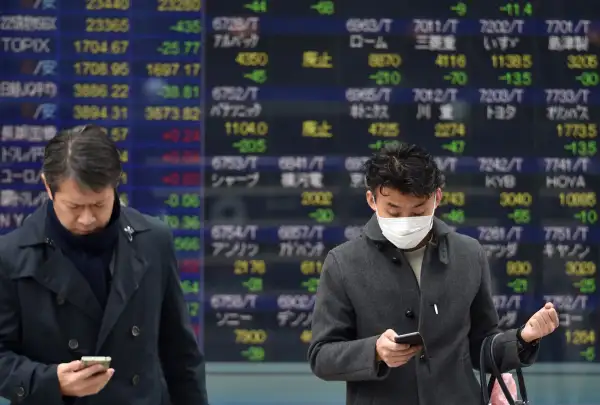Coronavirus Has Spooked Global Markets. Here's What It Means for Your Investments
Money is not a client of any investment adviser featured on this page. The information provided on this page is for educational purposes only and is not intended as investment advice. Money does not offer advisory services.

Since the deadly coronavirus began spreading in China late last year, it's sparked worries not just about health and safety but also about the global economy.
Chinese officials have cordoned off Wuhan, the city of 11 million where the outbreak originated, among other steps to contain the virus. While those measures should help, they've also slowed the movement of goods and services throughout China, crimping growth in what is now the world's second largest economy.
On Thursday, the Dow Jones Industrial Average was down about 165 points midday, or 0.6%, a slide some analysts pinned to fears about the virus.
With luck the deadly virus will abate. But the longer it lingers, the more potential harm it could inflict — in both human and economic terms. Here's how the coronavirus could affect your investments in 2020:
U.S. Stocks
If you've been following the headlines, you've probably seen news about how the coronavirus, and China's dramatic steps to contain it, are making it harder for U.S. companies that rely on Chinese factories to make goods. Earlier this week Apple warned it would miss its quarterly revenue target, in part because it was having trouble making iPhones and in part because of flagging demand from consumers in China. The news knocked about 1.8% off Apple's market value Tuesday.
But don't fret too much. The same day, the Standard & Poor's 500, an index of the U.S. 500 most valuable companies, was down only 0.3%. In fact, Apple's woes aside, brokerage LPL forecasts the average U.S. large-cap company will report first-quarter profits increased roughly 5%, with growth accelerating throughout 2020. In others words, while some companies will certainly be affected by turmoil in China, the overall impact on U.S. stocks will likely be muted.
Overseas stocks
While you may not think of yourself as owning Chinese stocks, if you have a 401(k) and chose the default option, typically a target-date fund, it is likely that you own at least a small amount. Vanguard Target Retirement 2050, a typical option for investors in their early 30s, for instance, has about 5% of its holdings invested in emerging-market Asian stocks, a category that includes China.
Earlier this year, as news of the disease spread, Chinese stocks began to tumble, dropping nearly 10% in the last two weeks of January. Since then, however, they have recovered most of the lost ground and are only about 3% below their mid-January highs. In other words, chances are you do own some Chinese stocks, and these could prove volatile. But remember they are likely to be just a sliver of your overall investment portfolio.
Bonds
Most Americans' investment portfolios have two components: stocks and bonds. Again, if you own a 401(k), it's likely you own at least some bonds. The idea is to diversify your holdings, since bonds often rise in price when stocks fall. The good news: That's precisely what's happened in response to the recent uncertainty. During the past month, the average intermediate-term "core" bond fund, the kind fund researcher Morningstar regards as a portfolio's basic building block, has returned about 1.3%.
That's a big four-week move for core bond funds. To put it in context, over the past decade these funds have returned about 3.6% each full year on average. One reason for bond funds to rally: U.S. bonds, especially Treasurys, are favorite safe havens not just for U.S. investors, but those around the world, including China.

